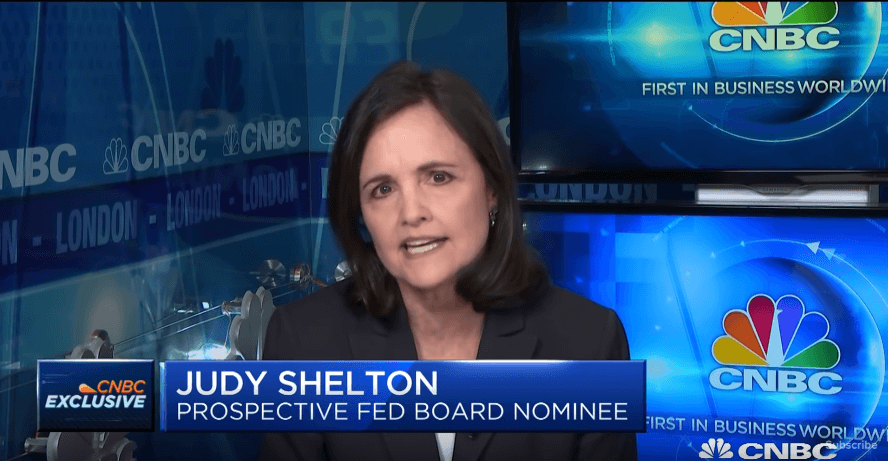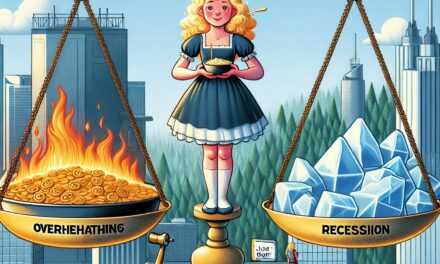Economist Judy Shelton, tapped by President Donald Trump for a seat on the Federal Reserve board, said on Friday she does not favor credit tightening by the Federal Reserve that would harm investors.
In a CNBC interview, Shelton sought to align her past criticism of the Fed’s record low interest rates during the Obama administration with the current attacks by Trump on Fed rate hikes.
“When you consider that over half of American households are invested in mutual funds or pension funds in this market, I don’t want the Fed to pull the rug out from under them by taking a position that is not conducive to further providing liquidity for this growing economy,” Shelton said.
Trump on Tuesday announced on Twitter that he planned to nominate Shelton, currently the U.S. executive director at the European Bank for Reconstruction and Development, and Christopher Waller, currently the research director at the Fed’s St. Louis regional bank, to two vacant seats on the seven-member Fed board.
Both picks are being viewed as efforts by Trump to influence Fed policy to lowering rates, which Trump for a year has contended are too high.
Shelton served as an economic adviser to Trump’s transition team and has worked for the Atlas Network, a think tank that has been critical of the Fed’s monetary policy and has advocated a return to the gold standard, which would tie the value of the dollar to the value of gold.
Most economists see such a move as far-fetched in the current global economy, arguing that it would result in more and deeper recessions by limiting the Fed’s flexibility to fight downturns.
Commenting on the Fed’s drive to support the economy after the 2008 financial crisis with low rates and massive bond purchases, Shelton said in a 2016 Wall Street Journal interview that “ultralow interest rates” have “flooded wealthy investors and corporate borrowers with cheap money, while savers with ordinary bank accounts have been obliged to accept next-to-nothing returns.”
Shelton was not asked in the CNBC interview to reconcile her past opposition to low Fed rates with her support of low rates now. But she did say that she felt that Fed tightening at the moment would be punishing the U.S. economy for making successful reforms while Europe, which has indicated it may supply more stimulus, would be rewarded for “not making the hard policy choices that bring about authentic growth.”
Recently, Mario Draghi, the head of the European Central bank, has said he would be prepared to provide more support to bolster a European economy that has been softening.
That comment brought praise from Trump who said he would like to swap Draghi for Fed Chairman Jerome Powell, who was tapped by Trump to head the central bank but has faced a barrage of criticism from the president for the Fed’s four rate hikes last year.
Investors had placed a near-certainty that the Fed would cut rates at its next meeting July 30-31. The Fed in a new monetary policy report to Congress released Friday repeated a pledge it made at its June meeting that it was prepared to provide extra support to keep the current recovery going if needed to combat a host of uncertainties from weak global growth to Trump’s get-tough trade policies.
But some economists said a rate cut in July may be less of a certainty after Friday’s report that the economy created a sizzling 224,000 jobs in June.
While calling the June job performance “unexpectedly good,” Trump continued to be critical of Fed policies.
“We are paying a lot of interest and it is unnecessary but we don’t have a Fed that knows what they are doing,” Trump told reporters. “If we had a Fed that would lower rates, you would have a rocket ship.”
© The Associated Press. All rights reserved.




